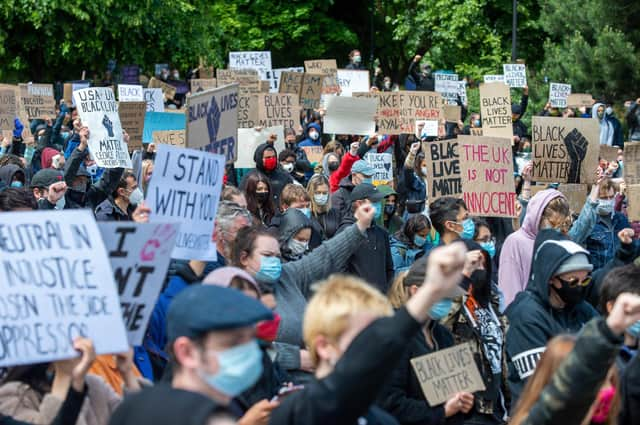LEGAL EAGLE: What are my rights when attending a protest?


If I go to another protest, will I be arrested if I refuse to comply with a request like this?
Freedom of speech and the right to assemble are protected by the Human Rights Act. The law includes the right to hold opinions and ideas and share them with others without the state interfering, and there are only very specific exceptions. The police powers to stop and search are the same at a protest as they are anywhere else – there must be reasonable suspicion that you may be carrying something illegal or something that can be used to commit an offence and you are likely to do so. Being a protest attendee, your race, gender or previous criminal record cannot be grounds for reasonable suspicion.
Advertisement
Hide AdAdvertisement
Hide AdThere are two exceptions to this rule – if a blanket search power has been granted to search anyone in a specific area within a defined period for weapons, or under anti-terrorism laws to prevent an act of terrorism from occurring. If the police do approach you, either at a protest or anywhere else, to carry out a stop and search you are entitled to certain information including why the police are stopping you, under what law, what they expect to find on you and that you have a right to a record of the search and how to obtain one.
If you refuse to give your details or be searched, you can only be arrested if the police have reasonable grounds to believe that you are going to or have committed an offence. If the police do not have reasonable grounds to believe this there is no power to arrest you. If the police do have reasonable grounds, they must also believe it is necessary to arrest you. Necessity to arrest can be to ascertain your name and/or address, amongst other factors, but the reasonable suspicion test must be considered before the necessity to arrest test. In other words, if there is no reasonable suspicion that you are going to or have committed a criminal offence there are no grounds to arrest you.
If you are arrested and questioned by police investigating a criminal offence, you are entitled to free and independent legal advice. Please contact our specialist criminal defence lawyers at Ben Hoare Bell LLP if you require any further information.